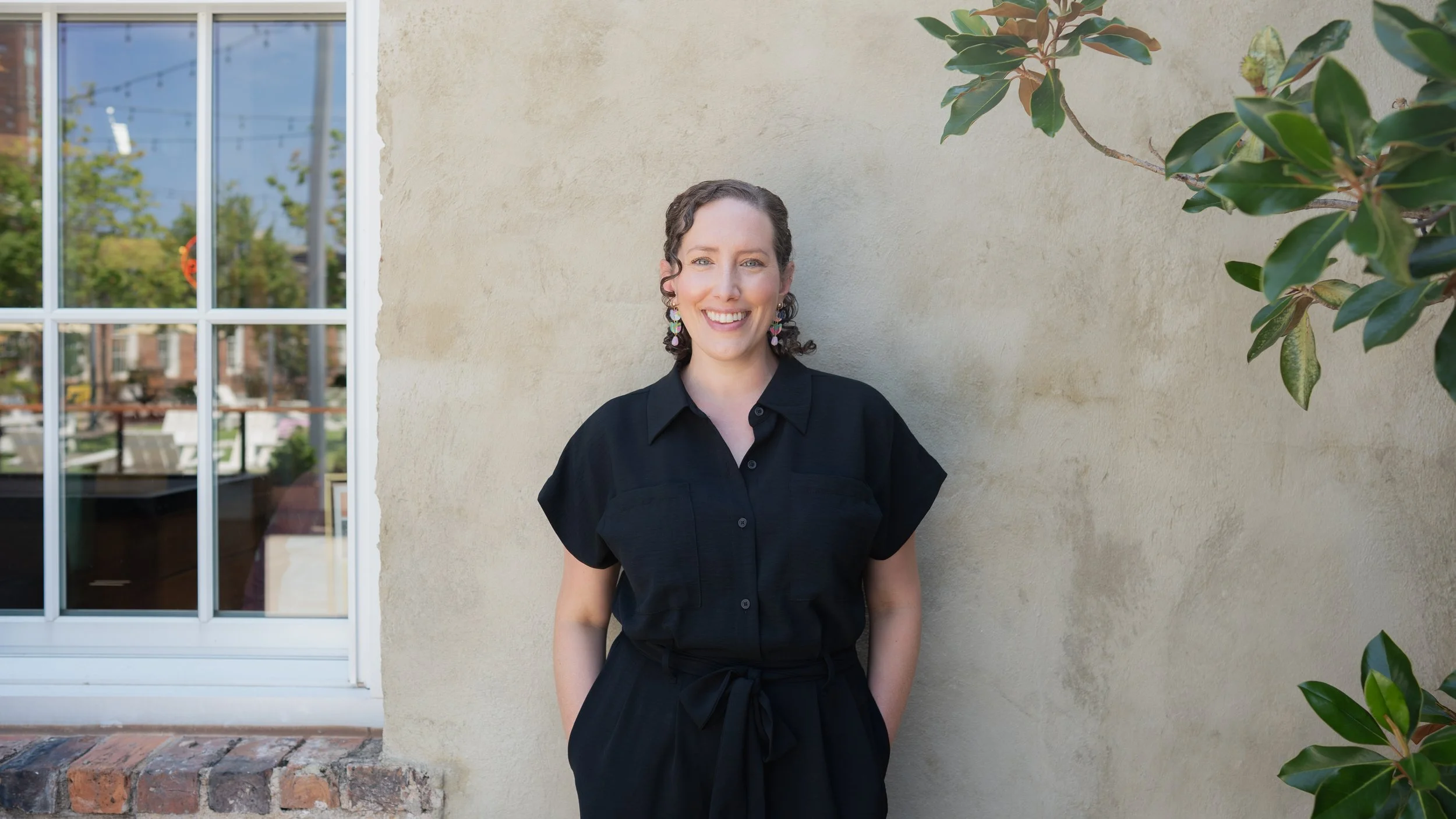Women’s Grief & Bereavement Therapy in Charlotte | Online Across NC & SC
You don’t have to minimize your grief, hide your pain, or walk this road alone any longer.
It’s heartbreaking you need someone like me…but I’m grateful you’re here.
You’re in the right place.
You feel like the world stopped when your loved one died.
Because the truth is—your world did stop.
In this new world, the one you didn’t ask to be in, nothing seems familiar.
Somehow, your grief is showing up everywhere…
Falling apart at the grocery store
Yo-yoing emotions that leave you spinning and exhausted
Awkward run ins filled with hurtful comments and unsolicited advice
Sudden overwhelm, constant aggravation, endless self-doubt
Guilt, guilt, and more guilt
Wondering who you can really talk to about this because no one seems to get it
Try as you might, the pain of this loss is getting bigger than you can handle & you’re not quite sure what to do with it all.

As untamed as your grief may feel, it all belongs.
Hi, I’m Anna.
I help women navigating the loss of a loved one to uncover the permission, ability, & confidence to grieve on their own terms.
I believe we are all worthy of a space that can hold the truth about just how consuming, painful, and disorienting it feels to lose a loved one. For once, you don’t have it all figured out to take the next step. In fact, reaching out without any idea of what you want out of therapy or what you need right now, is welcomed.
Together, we create a safe space that allows you to be just as you are, right here, right now: broken hearted, uncertain, and in need of support. I understand what a privilege it is to hear the story of you and your loved one—life, death, and everything in between. Here, you can bring the reality of your pain (trust me, I can handle it!) and I'll be in your corner as we move through it. I have hope that you will get through this, and I'll hold that hope for you until you start to feel it yourself.
Specializing in…
-
As a woman, balancing it all is just something you do. Then you lose a loved one…your life has been turned upside down, yet you’re expected to bounce back and keep it together all while taking care of everyone and everything. You deserve a space where you can let go, speak openly about your feelings, and receive the support you need, instead of always being the one to give it.
-
Losing a spouse, partner, or significant other can leave you feeling disoriented, stunned, and caught in a whirlwind of emotions, struggling to regain any sense of balance or normalcy. As a central part of your world, their absence impacts you profoundly, day after day, in ways you never anticipated. The grief you're experiencing is powerful, real, and deserves your care—you don’t have to go at this alone anymore.
-
Losing a parent sparks a rollercoaster of emotions, thoughts, obligations, and family “stuff”. No matter what kind of relationship you had—close, complicated, or distant—grief can hit hard and may not look the way you imagined. All your feelings are valid, but that doesn’t mean you have to carry the weight on your own. You deserve to have support through this.
-
Losing someone you love can make you feel like you're looking at a stranger in the mirror, disconnected from the person you once were and the life you once knew. The "before" version of you may seem like it’s gone forever, leaving you to question your identity, your value, and your place in the world. This is a difficult journey, but you don't have to navigate it alone—I'm here to walk alongside you to help you find yourself again.

You may not feel like it, but you have already taken the first step.
Here’s what’s next…
-
Seeking support, is a powerful step. Take a moment to acknowledge your strength! Now that you have chosen to show up, allow me to join you. Together, we’ll create a safe, reliable, and collaborative space where you can fully express your grief as your heart feels called to.
-
Grief is loud, unpredictable, and foreign—it makes sense if you want to push it away, mute it, or shut it down. Oddly, the more you can open yourself up to these feelings, honor your grief rather than fight it, and slowly learn how to give yourself and your grief permission to be, to belong…the more empowered you can become. We work together to create more capacity for your grief, greater compassion for yourself, and more room for love rather than pain.
-
Without your consent, grief will drastically rearrange your world, making it hard to trust that you or your life may ever feel whole again. Beginning to live again is often slow, subtle, and pretty scary. Though you may be unable to imagine it now, one day you might find yourself laughing freely, feeling more present, experiencing hope, or even seeing beauty where it once seemed lost. Grief takes more than just time, it requires presence: let’s help you grieve fully, so that you can begin living fully.
Discover YOUR version of grieving—grief that’s unique to you, your loved one, & the love you hold…on “this side”.
grieve freely
—
grieve loudly
—
grieve your way
—
grieve freely — grieve loudly — grieve your way —


